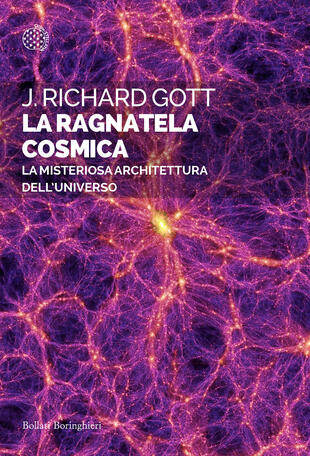

La ragnatela cosmica
-
Tradotto da: Simonetta Frediani
Tutti i formati dell'opera
Acquistalo
Sinossi
La Via Lattea ha circa 300 miliardi di stelle. Di fronte a numeri di questa impensabile enormità la mente vacilla, ma non è che l’inizio della storia di questo libro. J. Richard Gott è stato uno dei primi cosmologi a proporre un modello nel quale la struttura del nostro universo somiglia a una spugna, fatta da ammassi di galassie connessi tra loro attraverso filamenti di galassie, a formare una gigantesca «ragnatela cosmica» che si sviluppa attorno a immensi spazi vuoti. Negli anni questa ragnatela è stata effettivamente mappata e questo libro è il racconto di prima mano, da parte di un protagonista assoluto della vicenda, di come una generazione di teorici e di astronomi sia riuscita a svelare la struttura macroscopica del cosmo.
La storia prende piede con un mondo diviso in due dalla guerra fredda, nel quale la scuola americana si era concentrata su un modello basato su una struttura ad ammassi isolati, mentre quella sovietica descriveva una struttura fatta a nido d’ape, con le galassie disposte geometricamente attorno a grandi spazi privi di materia. Il lavoro di Gott si inserì in questa contesa, grazie a un’idea che l’autore aveva già iniziato a elaborare durante il liceo. In seguito, Gott misurò assieme a Mario Juric´ la Grande Muraglia Sloan, la più grande struttura di galassie mai mappata fino ad allora, coi suoi 1,37 miliardi di anni-luce di lunghezza (entrarono nel Guinness dei primati per questo). Mappando l’estremo confine dell’universo conosciuto, La ragnatela cosmica ci racconta i dettagli di questa affascinante ricerca e segna la via per una comprensione più accurata del cosmo che, grazie alla struttura di questa gigantesca ragnatela, ci appare sempre più chiara.
- ISBN: 8833933067
- Casa Editrice: Bollati Boringhieri
- Pagine: 312
- Data di uscita: 29-08-2019

